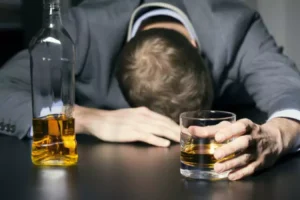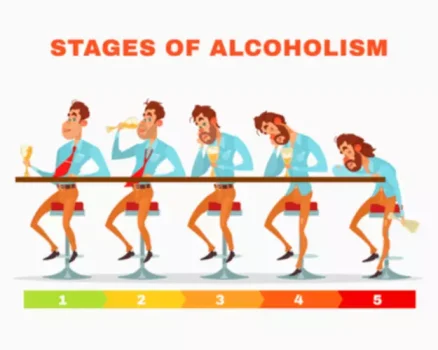
Eventually, you can develop permanent and irreversible scarring in your liver, which is called cirrhosis. If alcohol continues to accumulate in your system, it can destroy cells and, eventually, damage your organs. But when you ingest too much alcohol for your liver to process in a timely manner, a buildup of toxic substances begins to take a toll on your liver. Dr. Sengupta shares some of the not-so-obvious effects that alcohol has on your body. You probably already know that excessive drinking can affect you in more ways than one.
- When blood pressure decreases, these receptors help minimize how much the blood vessels stretch to increase blood pressure.
- The sample size in the meta‐analysis for low‐dose comparison was not adequate to assess the effects of low doses of alcohol on BP and HR; however, we believe that the direction of the change in BP and HR was correct.
- Thanks to generous benefactors, your gift today can have 5X the impact to advance AI innovation at Mayo Clinic.
Alcohol’s Effects on Blood Pressure and Incident Hypertension
The associations between drinking and CV diseases such as hypertension, coronary heart disease, stroke, peripheral arterial disease, and cardiomyopathy have been studied extensively and are outlined in this review. Although many behavioral, genetic, and biologic variants influence the interconnection between alcohol use and CV disease, dose and pattern of alcohol consumption seem to modulate this most. Low-to-moderate alcohol use may mitigate certain mechanisms such as risk and hemostatic factors affecting atherosclerosis and inflammation, pathophysiologic processes integral to most CV disease. Both the negative and positive effects of alcohol use on particular CV conditions are presented here. The review concludes by suggesting several promising avenues for future research related to alcohol use and CV disease.
Bjorntorp 1999 published data only

Finally, data from INTERHEART support the finding that the risk of MI is increased in the 24 hours after consumption of 6 or more drinks, suggesting that binge drinking increases MI risk (table 1). We planned on conducting sensitivity analyses on studies based on their level of risk of bias (high‐risk studies versus low‐risk studies). Most of the included studies had similar risk of bias across all domains except for performance bias and detection bias, for which risk arises from blinding of participants, personnel, and outcome assessors.
- This article will use the terms “female” and “male” when discussing people assigned female or male at birth to reflect language that appears in source materials.
- Conversely, moderate drinking has been repeatedly demonstrated to have potential benefits for patients with diabetes and abnormal lipoprotein profiles.
- A dose of 14 grams of pure alcohol/ethanol or less was defined as a low dose of alcohol.
- However, experts believe these effects may result from differences between people who drink moderately and those who do not.
- Some investigators have suggested that drinking wine may offer more protection against CV disease because it contains polyphenols, such as resveratrol and flavonoids, which are micronutrients with antioxidant activity (Tangney and Rasmussen 2013).
Cushman 1994 published data only
Because the participant population comprised predominantly young and healthy normotensive men, the overall evidence generated in this review cannot be extrapolated to women and older populations with other comorbidities. We created a funnel plot using the mean difference (MD) from studies reporting effects of medium doses and high doses of alcohol on SBP, DBP, MAP, and HR against standard error (SE) of the MD to check for the existence of publication bias. Visual inspection of funnel plots shows that the effect estimate is equally distributed around the mean in Figure 4, Figure 5, Figure 6. In Figure 9, Figure 10, and Figure 11, we observed slight asymmetry in the funnel plot that was probably due to heterogeneity rather than to publication bias. We noted some overlap of data points in some funnel plots, indicating that some of the included studies were of similar size.
Depressants inhibit many of the brain’s functions, such as slowing down its control of the body, with even just small amounts affecting important functions like speech and movement. Explore the effects of alcohol on the body and learn how to manage your blood pressure for better health. For example, some people who are on cholesterol-lowering medicines may experience muscle aches when they drink alcohol. Because alcohol and cholesterol medicine both are processed through your liver, they are, in a sense, competing for clearance.

Research has found that CCBs are particularly advantageous for the initial treatment of high blood pressure in African-American people. Alcohol also causes damage to the liver over time, especially if you drink too much. If you have alcoholic cardiomyopathy, stopping drinking can lead to improvement or even recovery for many. If you drink regularly, you might feel like alcohol doesn’t affect you as much, but this usually means you’ve developed a tolerance to some of the effects. The morning after a night of over-imbibing can cause some temporary effects on your brain. Things like trouble concentration, slow reflexes and sensitivity to bright lights and loud sounds are standard signs of a hangover, and evidence of alcohol’s effects on your brain.
Some studies suggest low amounts of alcohol may help reduce blood pressure or risk of heart disease. However, the CDC states these findings may be due to other lifestyle differences between people who drink moderately and those who do not. Through the process of oxidative phosphorylation, the mitochondria generate ~90 percent of cellular ATP. Common findings in alcohol studies from the 1970s and early 1980s included decreases in mitochondrial indices that reflected mitochondrial state III respiration, or ADP-stimulated respiration (Pachinger et al. 1973; Segel et al. 1981; Williams and Li 1977).

Several clinical trials in humans and studies conducted in animal models have reported stimulation of the sympathetic nervous system and increased noradrenaline after consumption of alcohol (Barden 2013; Grassi 1989; Randin 1995; Russ 1991; Zhang 1989). When noradrenaline https://ecosoberhouse.com/ stimulates the adrenergic receptors located in the heart muscles, heart rate and blood pressure are increased. We are also moderately certain that high‐dose alcohol decreased blood pressure within six hours, and the effect lasted up to 12 hours.
While some people develop a tolerance to alcohol over time, this isn’t true for everyone — and this ability doesn’t last forever, Dr. Cho notes. But it may be worthwhile learning about what counts as binge drinking and whether or not you may be drinking too much and don’t even know it. And if you have a history of high how does alcohol affect blood pressure blood pressure, it’s best to avoid alcohol completely or drink only occasionally, and in moderation. According to a 2020 literature review, clinicians are not completely sure why alcohol raises blood pressure. It’s important to note that some studies examined only looked at small numbers of females compared to males.
- Much of the current literature on alcohol does not mention the hypotensive effect of alcohol or the magnitude of change in BP or HR after alcohol consumption.
- Depressants inhibit many of the brain’s functions, such as slowing down its control of the body, with even just small amounts affecting important functions like speech and movement.
- A recent research paper examined whether drinking was related to hypertension, the root factor in morbidity and mortality caused by cardiovascular disease (CVD).

